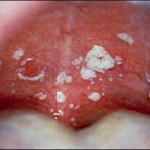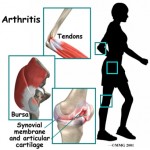Last Updated on November 30, 2010 by Bryan Dastan

Egg allergy is the most common form of food allergy especially among children. People suffering from it become hypersensitive to dietary substance from the whites or the yolk of eggs. Simply put, when people allergic to egg consume this foodstuff, their immune system overreacts. This may give rise to some physical symptoms that are grave in nature. In children, egg allergy is the second most common form of food allergy after cow’s milk allergy. Though, most children tend to outgrow egg allergy eventually.
Egg allergy can be prevented by avoiding foodstuffs that contain eggs. This may seem to be a challenge as eggs are commonly used in various foods. Hence, it is important for people suffering from this allergy to be aware of what food they are eating. Better option is to read the food labels before purchasing food items.
Egg allergy symptoms
Symptoms of egg allergy typically occur after a few hours of consuming an egg. A person sensitive to egg may experience the following symptoms:
- Skin – Inflammation, hives, flushing, eczema or swelling;
- Respiratory system – runny nose, difficulty in breathing or wheezing;
- Digestive system – diarrhea, stomachache, vomiting, nausea, or itching around the mouth
- Cardiovascular system- low blood pressure, paced heartbeat or heart problems
- Rhinitis or allergic nasal inflammation
- Allergic asthma
In rare cases, people who are sensitive to egg have also experienced a condition called anaphylaxis. In this condition, a human body develops an allergic reaction that has the potential to block the airways and breathing.
A person may be required to visit a doctor if he observes the egg allergy symptoms mentioned above especially in case of breathing problems. Most of these egg allergy symptoms are mild in nature and occur shortly after eating. However, if a person notices symptoms getting worse then seeking a doctor’s help while the egg allergy symptoms still persists is recommended. The doctor in such case can make a definite diagnosis.
What triggers egg allergy?
Egg allergy or any kind of food allergy is caused due to the malfunctioning of the immune system. The immune system of the body considers certain proteins in the egg as harmful, and hence starts producing immunoglobulin E (IgE) antibodies to fight the invader. In the process, chemical called histamine is released in the body. Histamine can trigger allergic symptoms such as sneezing, watery eyes, itching, hives, rashes, diarrhea, dry throat and runny nose.
Egg whites and egg yolks both contain proteins that can trigger allergies in people however allergy to egg whites is more common.
How to deal with egg allergy?
There is no better way to treat egg allergy than to avoid it. Do not eat egg or any food that contains egg. Avoidance is the only way out when it comes to food allergies. Hence, be cautious while buying foodstuffs that states on the label: Dried egg, egg yolk, egg white, egg solids, powdered egg or whole egg. Also, read for the ingredients such as albumin, lysozyme, globulin, livetin, lysozyme and vitellin. Make a note of all the ingredients that contain egg proteins and carry the note whenever going for shopping. This may seem difficult but it is worth the effort.



